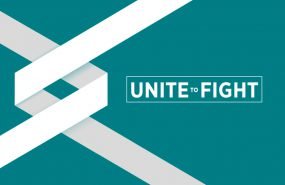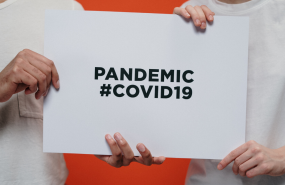UNAIDS report “Governments fund communities”: Moldova
- 30.06.2016 00:42
- Post Views: 1,318
As stated in the report, integrating community responses to HIV in national AIDS plans, including budget allocations, will be key to ending the AIDS epidemic by 2030. This will require transforming financing mechanisms and service delivery and linking community systems into resilient systems for health.
It describes examples from 6 countries who have managed to arrange government funding for community services. Specifically the examples from Malawi and the Republic of Moldova demonstrate how Global Fund to Fight AIDS, Tuberculosis and Malaria (Global Fund) resources allocated to the government can be directed to civil society organizations. Moldova is recognized in the region as an example of good practices in the HIV response due to its successful implementation of harm reduction programmes in communities and prisons.
Moldova
In 2014, 17 541 people were estimated to be living with HIV in the Republic of Moldova. The Republic of Moldova has a low-prevalence HIV epidemic concentrated among people who use drugs, with evidence of increasing incidence in the general population. In regional towns (eg. Balti and Tiraspol) the prevalence is significantly higher than in the capital, and even though prevention programming for people who use drugs is available there, there is less prevention programming for men who have sex with men and sex workers; stigma makes all these populations hard to reach.
Currently there are several national civil society organizations providing services to vulnerable and key populations and people living with HIV. Predominantly the funding of programs for KPs has been coming from the Global Fund and was administered by a non-governmental PR.
Moldovan health officials have demonstrated a commitment to support the community component of the HIV response. They have agreed to replace some of the funding provided by the Global Fund and other external funders through their own resources. Regulatory hurdles have turned out to be more time-consuming than was anticipated, which may delay the smooth transition to country-financed support for community responses.
In anticipation of the reduction of Global Fund funding, the Moldovan Government has indicated it will assume the cost of all antiretroviral therapy, including second- and third-line therapies, treatment monitoring and patient follow-up, through the Ministry of Health budget and the national health insurance programme. In 2014 the Ministry of Health also set aside money in its budget to support one prevention project focusing on people who use drugs, to be implemented by a national nongovernmental organization. The Ministry of Health plans to increase its commitment to fund two harm reduction projects per year starting in 2016. The national AIDS programme acknowledges that community organizations should implement these programmes, because they are better equipped and better trusted by key populations than state agencies.
To be able to allocate funding to nongovernmental organizations, the Moldovan Government needs to approve a new normative framework that defines a mechanism for financing health nongovernmental organizations. To date the framework has not been fully developed or taken into action, though a lot is being done on the governmental level towards its establishment. Though, even when these new mechanisms are in place, it is unclear whether funding will be sufficient to meet the needs of the community component of the HIV response. Nongovernmental organizations anticipate that unless additional funding is made available, they will be unable to continue offering the current levels of services.
Nongovernmental organizations from the Republic of Moldova and elsewhere in the region have argued it is crucial to monitor levels of funding available to support the community component of the response. If funding decreases and community services are discontinued, the gains achieved so far in addressing the epidemic could be in jeopardy.
Read the full section on Moldova on page 26 of the report.
Related News
Get Engaged in the ‘UNAIDS Strategy Beyond 2021’ Development Process
UNAIDS is now in the process of developing its next Strategy for 2021 and beyond. The timeline for developing the Strategy was supposed to have started early this year, but it was hampered by the COVID-19 pandemic. It has now been extended to accommodate a longer consultation period to ensure a full and more meaningful […] Read moreGlobal Fund funding opportunity – COVID-19 Response Mechanism
The COVID-19 Response Mechanism (C19RM), approved in April 2020, authorizes US$500 million in funding in addition to grant flexibilities. C19RM can be used across the three diseases and the health system, even if a country only has a single Global Fund grant for one component. The CCM will assess the most urgent needs and direct […] Read moreCOVID-related Funding Opportunities for Civil Society Working on HIV, TB, Malaria, Gender and Human Rights
We would like to share with you the information about few COVID-related Funding Opportunities available for Civil Society Working on HIV, TB, Malaria, Gender and Human Rights in EECA. Post Views: 3,243 Read moreServices for migrants and refugees from Ukraine – HIV/TB care with a focus on key populations
Due to the increasing flows of refugees from Ukraine because of Russia’s invasion of Ukraine, the EECA Regional Platform created a spreadsheet to fill contacts details of face-to-face and online services for refugees and migrants (with a focus on HIV/TB care and key population groups).
Regional Platform – EECA
This web-resource is a part of new regional communication and coordination project “Regional Civil Society and Community Support, Coordination and Communication Platform - EECA”, implemented by Eurasian Harm Reduction Association (EHRA).
Tags
See also
-
EECA’s Regional Platform monthly Newsletter #21, February 2026 26.02.2026 11:56
-
EECA’s Regional Platform monthly Newsletter #20, January 2026 27.01.2026 12:58
-
Global Fund Eligibility List 2026 27.01.2026 11:19







